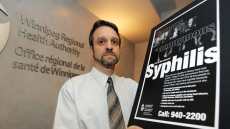Overwhelmed by people trying to find the prized medicinal fungus known as Himalayan Viagra, two isolated Tibetan communities have managed to implement a successful system for the sustainable harvest of the precious natural resource, suggests research.
“There is this mistaken notion that indigenous people are incapable of solving complicated problems on their own. These communities show that people can be incredibly resourceful when it is necessary to preserve their livelihoods,” explained Geoff Childs, associate professor of anthropology from Washington University in St. Louis.
Located high in the Himalayan foothills along Nepal’s northern Gorkha District border with China’s Tibet Autonomous Region (TAR), the tiny rural communities of Nubri and Tsum now reap as much as 80 percent of their annual income during the caterpillar fungus (locally called Yartsa gunbu) spring harvest season.
Yartsa gunbu fetch more per ounce than gold in some Chinese markets.
“Although local incomes are still modest by Western standards, residents have seen average annual incomes rise from an average of a few hundred dollars to upwards of $4,000,” researchers noted.
Finding a single spore of the fungus could yield the cash equivalent of what local men typically make over several days carrying a heavy backpack of goods across mountain passes.
Yartsa gunbu results from a fungal infection that invades the bodies of ground-burrowing ghost moth caterpillars.
In early spring, pinky-sized spores of the fungus emerge from the caterpillars’ mummified bodies and pop up in remote grassland pastures across the Tibetan Plateau.
Meanwhile, outside experts warn that over-harvest of the fungus could cause irreparable damage to fragile high-mountain pastures, with some suggesting yartsa gunbu production already had declined by 40 percent.
Despite dire predictions, Childs and Washington University anthropology graduate student Namgyal Choedup suggest that local communities are rising to the challenge.
“The communities’ harvest protocols represent an indigenous form of regulatory management - one that may prove sustainable and equitable over the long-term,” they noted.
The paper appeared in the journal Himalaya.





